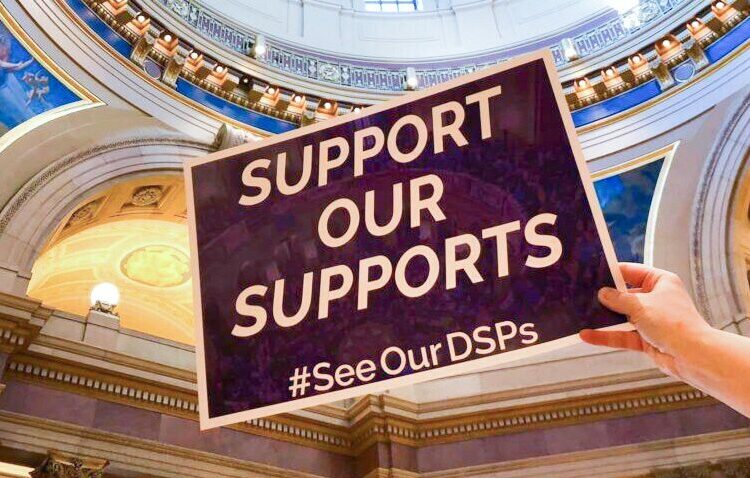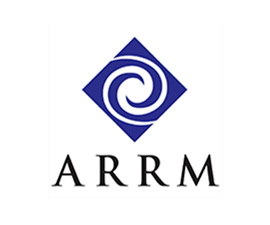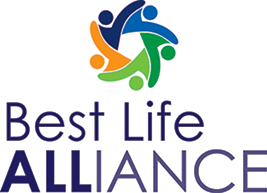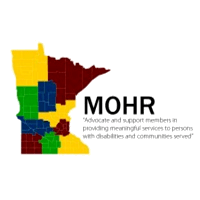Advocate

How To Advocate for OP
Opportunity Partners’ advocacy efforts aim to enhance the quality of life for people with disabilities while honoring our core values of impact, choice, heart and partnership. Our value of partnership means we aim to create positive change through advocacy.
By working together using advocacy, we aim to educate and empower the people we serve, friends, families, staff, volunteers, and other members of our community on issues impacting people with disabilities and broader disability services. Together, we are a powerful voice for change!
COAL
The Committee of Advocacy & Leadership (COAL) is a person-first group for and by people supported by Opportunity Partners who want to learn, teach, and practice self-advocacy.
Newsletters
Subscribe to our Newsletter to stay updated on our advocacy efforts and other news!
Understand the Issues
Opportunity Partners follows these policy areas closely and we are involved with other disability service organizations and advocates to help analyze and advocate for policy changes that benefit the people we serve and their families, staff members and broader disability services.
Read more on the Direct Support Professional Workforce Crisis that is affecting disability service organizations nationwide and across Minnesota:
ANCOR’s State of America’s Direct Support Workforce 2021 Report
Institute on Community Integration at the University of Minnesota’s direct support workforce webpage
In 2007, the Centers for Medicare and Medicaid Services informed Minnesota that its four disability waivers were out of compliance with federal requirements for uniform rate distribution methods and standards. These include the Brain Injury (BI), Community Alternative Care (CAC), Community Access for Disability Inclusion (CADI) and Developmental Disabilities (DD) waivers. In January 2014, DHS established what is now known as the Disability Waivers Rate System.
MN Department of Human Services site on Disability Waivers Rate System
This rule addresses several sections of Medicaid law under which states may use federal Medicaid funds to pay for home and community-based services (HCBS). The rule supports enhanced quality in HCBS programs, adds protections for individuals receiving services, and reflects that individuals receiving supports through HCBS have full access to the benefits of community living and are able to receive services in the most integrated setting appropriate to their needs.
The MN Department of Human Services released its Employment First Policy as part of its Olmstead Plan. Employment First has four core values: that employment is the first and preferred outcome for working-age people with disabilities; people with disabilities are competitively employed or self-employed; employees with disabilities earn at least minimum wage and benefits; employees with disabilities are fully integrated into the workplace and interact with co-workers, customers and the public. The plan includes additional sections on informed choice around employment including benefits of work, exploration and support, work experience and employer engagement, as well as state agency requirements and quality assurance.
MN Employment First Policy (adopted by the Olmstead Subcabinet on 9/29/14)
As a result of a U.S. Supreme Court decision, states were required to develop an Olmstead Plan that outlines how people with disabilities will have choices about where they live and are served in community settings suitable to their needs and desires. This involves developing plans for employment, housing, transportation, healthcare, etc., in the most integrated settings.
In 2014 Congress passed WIOA, designed to help job seekers access employment, education, training and support services to succeed in the labor market and to match employers with the skilled workers they need to compete in the global economy. It increases individuals with disabilities’ access to high quality workforce services and prepares them for competitive, integrated employment. It requires better employer engagement and promotes accessibility to employment and training services for people with disabilities. Youth with disabilities will receive extensive pre-employment transition services to obtain and retain competitive, integrated employment.
Section 14c of the Fair Labor Standards Act (FLSA) authorizes employers, after receiving a certificate from the Wage and Hour Division, to pay special minimum wages to workers who have disabilities. This is highly regulated by the U.S. Department of Labor; however, there are increasing pressures at the federal level and among advocacy groups to eliminate the practice. In February 2014, President Obama signed an executive order to raise the minimum wage for federal contract workers, including those with disabilities employed under new government contracts.
Every year during the legislative session, elected officials across Minnesota discuss, debate, and create laws. Some of these laws impact individuals with disabilities, disability service organizations like Opportunity Partners and other members of our community. Minnesota’s 2022 legislative session begins on Monday, January 31 and ends on Monday, May 23.
Our membership organizations ARRM and Best Life Alliance will advocate at the legislature for short-term and long-term measures to address the significant staffing shortages affecting disability service organizations across Minnesota: ARRM 2022 Legislative Agenda
Join our mailing list at the bottom of the page to stay informed about advocacy efforts and help take action!
The federal Workforce Innovation & Opportunity Act (W.I.O.A.) requires that organizations like Opportunity Partners provide information about self-advocacy, self-determination and peer mentoring training opportunities available in our geographical area. Here is a list for your reference. We have also posted this information in our handbook.
The Minnesota Families & Advocates Coalition (MNFAC) was formed in 2016 as a volunteer organization of parents and family members concerned with the rights of individuals with disabilities. Currently, some of MNFAC’s primary concerns are with the Disability Waiver Rate System and the Direct Support Professional (DSP) Workforce Crisis. MNFAC’s goals include statewide advocacy, awareness and advisement. Check out the MNFAC website for resources and upcoming events.
Contact Your Legislators
Ready to take action and advocate for Opportunity Partners? The Minnesota Legislature has a great tool to help find your representative. Use the link below and make a difference in the lives of people with disabilities!

Our Advocacy Partners
ARRM
Opportunity Partners is a proud member of ARRM, an association of over 200 disability services organizations and other advocates dedicated to advancing home and community-based services supporting people with disabilities.
How to receive updates from ARRM:
- Learn more on ARRM’s website
- Like ARRM on Facebook and follow @ARRM on Twitter

Best Life Alliance
Opportunity Partners is an active member of the Best Life Alliance, a nonpartisan coalition of more than 130 organizations, people with disabilities, families and supporters across Minnesota. Best Life Alliance advocates for available, stable and sustainable Home and Community-based Services (HCBS).
How to receive updates from Best Life Alliance:
- Learn more on Best Life Alliance’s website
- Like Best Life Alliance on Facebook and follow @BestLifeMN on Twitter

MOHR
Opportunity Partners is a proud member of MOHR (Minnesota Organization of Habilitation and Rehabilitation). MOHR is comprised of about 100 Adult Day, Day Training & Habilitation, Extended Employment and Supported Employment Service member organizations, serving more than 26,000 people with disabilities across Minnesota.
How to receive updates from MOHR:
- Learn more on MOHR’s website
- Like MOHR on Facebook, follow @MOHRMN1 on Twitter and follow @MOHRMN on Instagram.